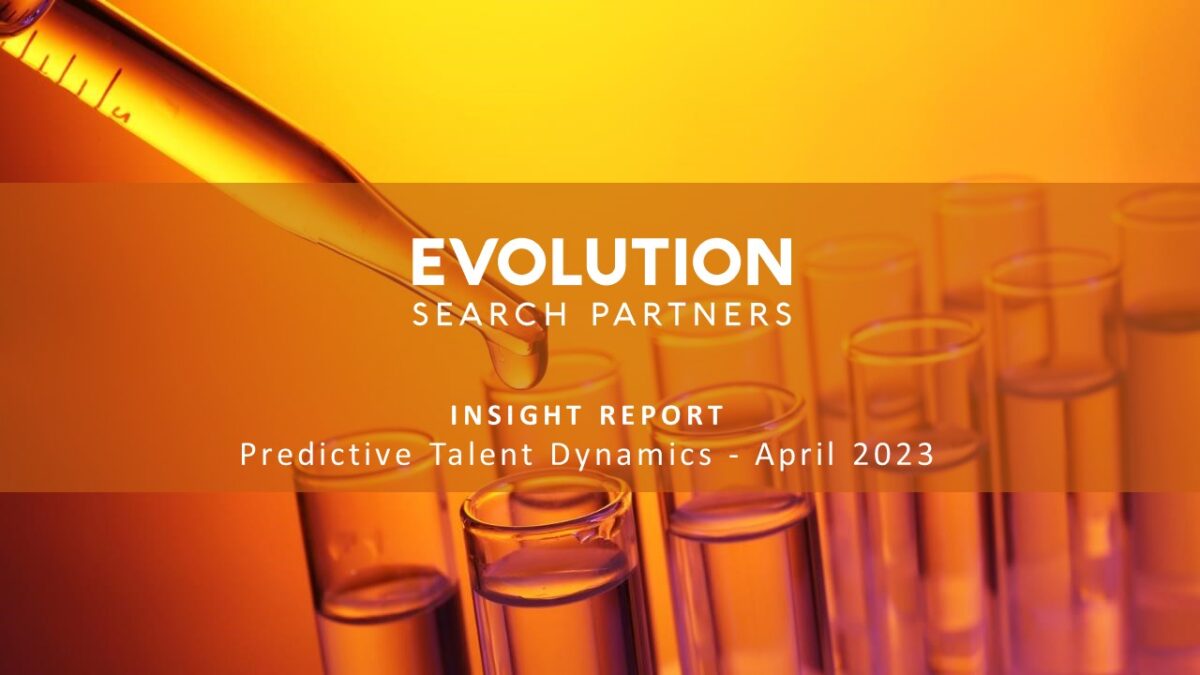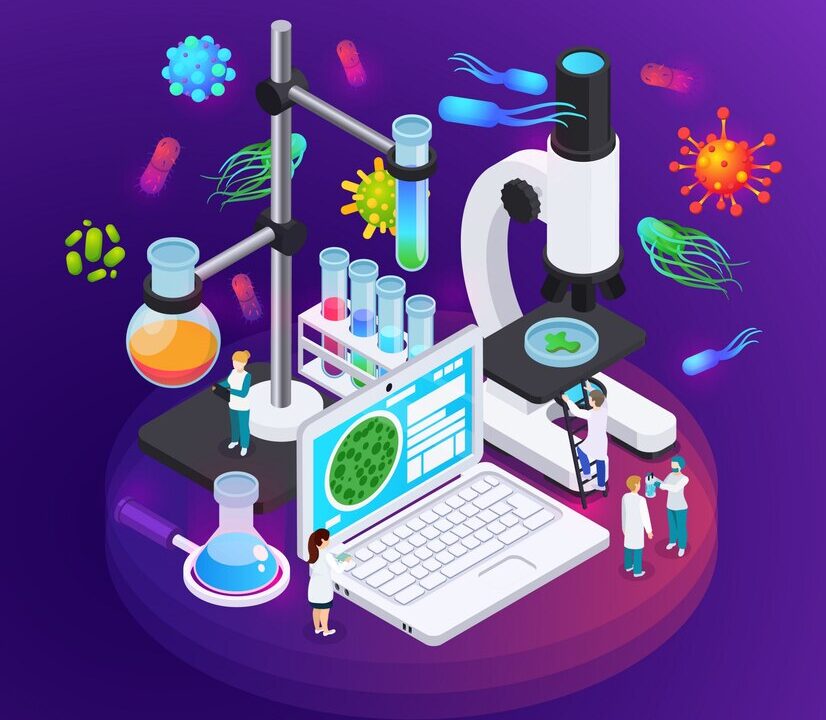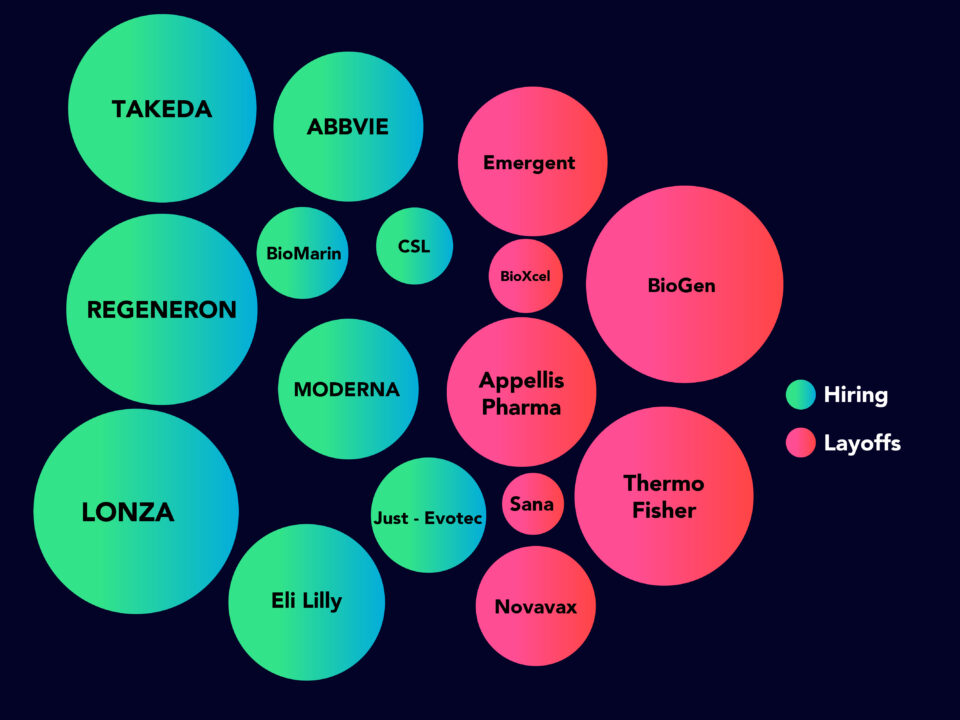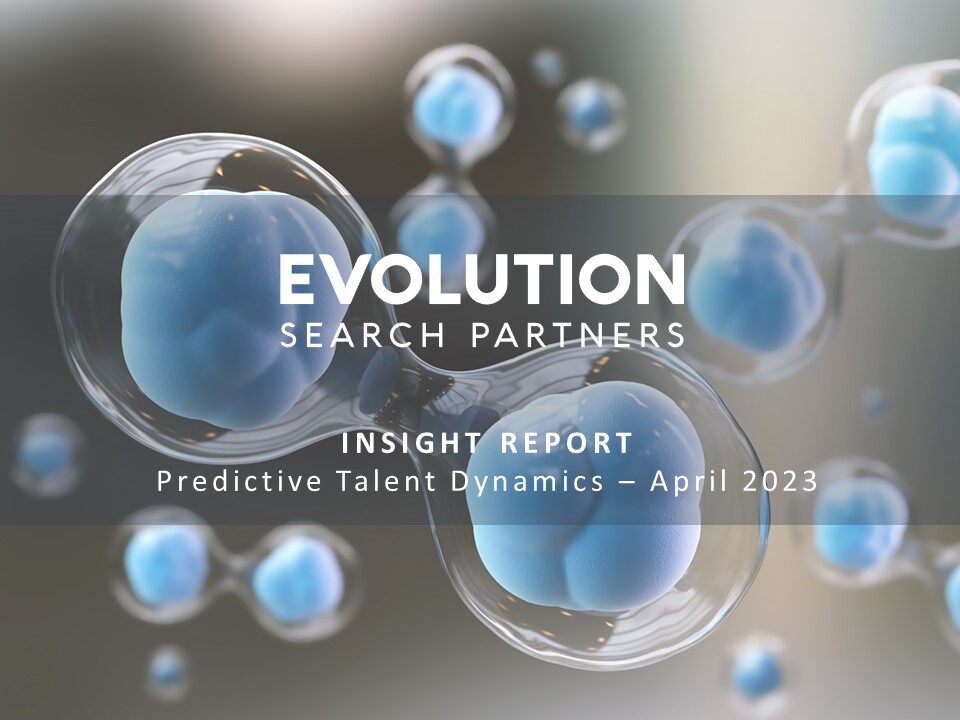
Predictive Talent Dynamics, CGT Apr 23
April 25, 2023
Predictive Talent Dynamics, CGT JULY 23
August 25, 2023Current and Future Skills Gaps in the Bioprocessing Sector
The Biopharma industry is experiencing a transformative shift with the advent of Biopharma 4.0, driven by advanced technologies, data analytics and automation. Whilst Biopharma 4.0 promises increased efficiency, productivity and quality in bioprocessing, it also introduces a critical challenge; a Biopharma 4.0 skills gap. To determine any potential skills gaps resulting from the demand of Industry 4.0, labour analytics databases was used to identify real-time labour market patterns, as well as the occurrence rate for particular skill and expertise terminology.
A customised search was also executed by applying different filters. Additionally, requirements for specific competences and sector expertise which are recorded on job postings were analysed. For each sector, the keywords of ‘Biomanufacturing’, ‘Bioproduction’ and ‘Bioprocess’ were applied to generate data related to expertise and skills.
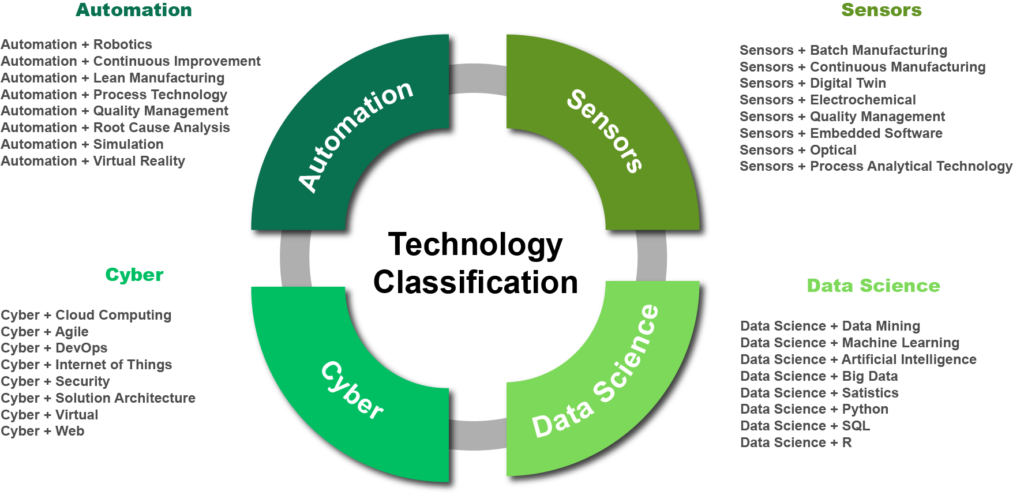
Considering the rise of Industry 4.0 principles in Biomanufacturing, firms might face several key obstacles to matching talent demand and supply, predominantly due to the absence of industry 4.0 skills in biology-related postgraduate education and in available industry training.
Whilst Biopharma 4.0 training programs offer exciting opportunities, the challenges described above need to be navigated by change management. By proactively addressing these challenges, training programs can effectively equip professionals with the skills and knowledge needed to succeed in the Biopharma 4.0 era. The future of training is characterised by continuous learning, microlearning, blended approaches, virtual and augmented reality, data-driven analytics, personalised pathways, industry-academia collaboration, and lifelong learning initiatives. By embracing these advancements, the industry can equip its workforce with the necessary skills to thrive in the dynamic landscape of Biopharma 4.0, and drive innovation in drug development.
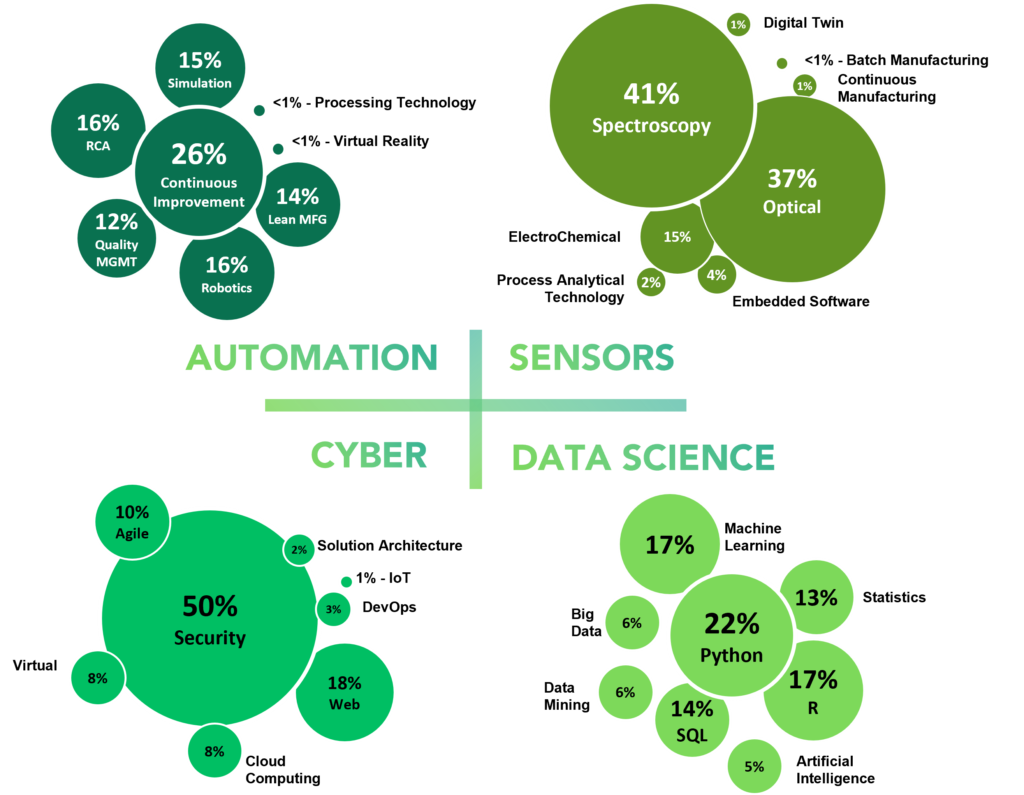
Figure 3 illustrates an assessment of the current Biomanufacturing talent field. The figure demonstrates strong expertise in automation. Data science skills portray evidence of python programming, in addition to the expertise in cybersecurity and optical and spectroscopy sensors. However, there was a lack of experience detected in VR, AI and digital twins.
Figure 4 illustrates an assessment of the current Biomanufacturing job postings showing a strong requirement for automation experience, specifically related to continuous bioprocessing, quality, lean manufacturing, and root cause analysis. In addition, Data Science experience, specifically programming skills, R and python is in high demand. Most Cyber expertise detected in Biopharma job postings was restricted to ‘agile’, and a high demand revealed job postings were specific to spectroscopy sensors for sensors.
This briefing has identified and illustrated gaps in skills and domain knowledge topics in the major technology clusters linked to the emergence of BioPharma 4.0. The implications of this research is useful to employees, with recommendations on upgrading skills in accordance with emerging and future requirements. Insights are also provided that will be useful in designing data science-related curricula for postgraduate Biomanufacturing programs, as well as training providers. We therefore anticipate myriad difficulties within the Biopharma talent supply chain as the adoption of Industry 4.0 increases. Growing technological complexity and broad adoption of digital innovations are already prompting changes to requirements for new employees, with biomanufacturers requiring increasingly more diverse, technical, and scientific skills. The transition to an automation and digitalisation-driven operating model, designed to increase connectivity and adaptivity in business operations, demands a new skill set where new employees require expertise not solely in the science of biopharmaceutical development, but also in its driving technologies.
Data science exhibits a growing talent frequency but falls short of meeting the strong demand for professionals in the field, indicating a potential talent gap. ‘Automation’ also shows a high talent frequency and strong job demand, suggesting a well-matched supply and demand relationship. A potential skills gap is apparent for data science expertise requirements. The Biopharma workforce market assessment provides a general analysis of the emergent and impending trends of the employee skills and expertise requirements in the Biomanufacturing sector, as well highlighting potential skills gaps associated with the automation, data science, sensor technology and cyber clusters. This knowledge can influence industry and educational stakeholders to better prepare the workforce for current and future talent demand through adapted recruitment and retention strategies, utilising training, and educational pipelines.

Evolution provides elite executive search & headhunting solutions for companies at the forefront of scientific and technological advancement. We provide bespoke recruitment solutions for our exclusive clients on a global level; providing a deeper service provision with value-added services.

